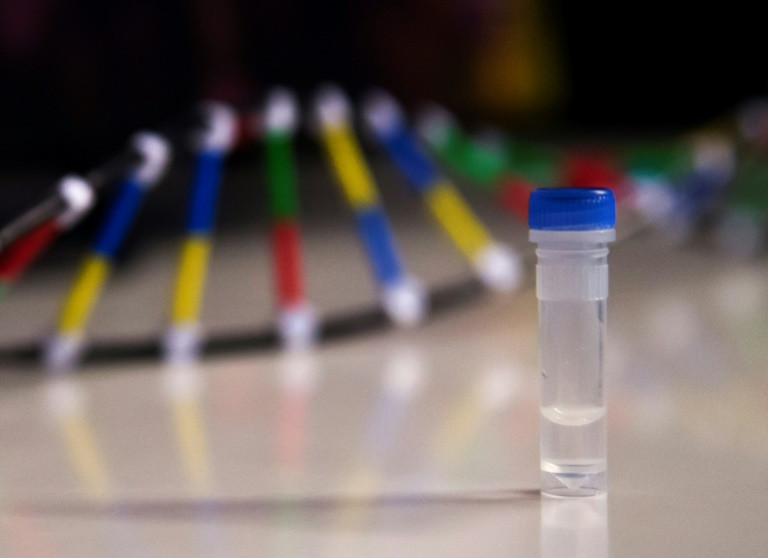Popular Reads
Top Results
Can't find what you're looking for?
View all search resultsPopular Reads
Top Results
Can't find what you're looking for?
View all search resultsGenomic start-ups: Lack of awareness may slow growth
Awareness impacts public genomic-service use.
Change text size
Gift Premium Articles
to Anyone
I
ndonesian start-ups developing DNA-related solutions are gaining traction with more investors showing higher appetite to invest in the industry, especially after the COVID-19 pandemic.
Funding for start-up companies has continued to flow, especially those in tech industries, which marks a shift of investors’ attention.
Recently, a startup that provides direct-to-consumer DNA tests called Asa Ren, has raised US$8.15 million in funding from United States and local venture capital firms that includes a publicly-listed healthcare firm, PT Diagnos Laboratorium Utama (Diagnos), a subsidiary of RS Bunda Group.
Diagnos has invested in another genomic tech company called Nalagenetics, which partners with healthcare providers to provide personalized medications, diets and screening solutions. The fledgling startup raised a $12.6 million series A round of funding last year.
Read also: As COVID-19 wanes, govt seeks to transform healthcare system
East Ventures, a homegrown venture capital firm, also stepped up its attention to the industry by investing in Nalagenetics and Nusantics, with the latter using genomic technology to understand the impact of microbes on human health.
Last year, Nusantics was admitted to a genomic tech-focused accelerator that was organized by Illumina, a major US-based DNA sequencing firm.
Investment in genomics has the potential to bring significant economic benefits to Indonesia, amounting to $110 billion, on top of its healthcare benefits, according to a white paper published by East Ventures on Thursday.
Developing a genomics landscape in Indonesia could lead to incremental productivity for patients whose diseases are detected early and who do not have to exit the workforce, the white paper said.
Additionally, it could also help drive down overall healthcare costs because of early detection and targeted treatments, the white paper continued.
Read also: Revival of small start-ups amid downfall of tech giants
Challenges ahead
Aside from the private sector, the Indonesian government has seen the potential of genomics tech to improve its healthcare industry.
Last year, the Health Ministry established the Biomedical and Genome Science Initiative (BGSi), a national body responsible for managing genomics projects in the country.
Its responsibility includes a national biobank that is expected to sequence 10,000 data by next year through genome sequencing and integration of medical data.
Having a homegrown capability of genomic tech is important for the country as it cannot depend on samples from other nations, according to Rizka Andalucia, the undersecretary for pharmaceuticals and medical devices at the Health Ministry.
"For example, the human papillomavirus (HPV) that causes cervical cancer. When we want to develop the vaccine, we do not know which variant is fixed with the Indonesian population," Rizka said at an East Ventures event on Thursday.
In the white paper, East Ventures stressed the existing regulation needed to be more simplified in regard to ethical approval for clinical trials of genetic data.
Privacy and ethical use of biological samples as well as how companies should maintain their data management and storage infrastructure are needed to be well regulated, the white paper says.
Players such as Nalagenetics and Nusantics mentioned that low awareness of genetic testing in Indonesia might hamper their growth.
Genomic start-ups usually work with doctors, health providers and laboratories to nurture public awareness, but more needs to be done.
If done well, those partnerships could also scale the volume of testing, which will bring down the cost of these kinds of services.
"We have data to show how our tests, if applied properly, will save costs for patients and payers. The challenge now is communicating that value proposition with partnerships with pioneering institutions," Nalagenetics CEO Levana Sani told The Jakarta Post on Wednesday.
Indonesia is still in the early days of genomic tech, far behind its other Southeast Asian counterparts, such as Singapore and Vietnam, who have succeeded in pushing the development with high private participation, East Venture’s white paper said.
East Ventures managing partner Willson Cuaca mentioned at the event on Thursday, his firm planned to establish a specific investment fund for healthcare solutions soon for targeting these kinds of opportunities in the future.










